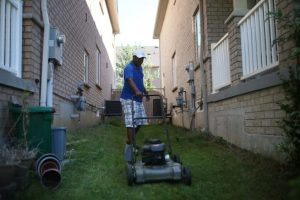Source : Journal Now
By : Michael Hewlett Winston-Salem Journal
Category : Attorney Matthews Bark, Matthews Bark

North Carolina’s voter ID law may not go to trial after all, according to court documents filed Monday. The recent federal trial on North Carolina’s Voter Information Verification Act that ended about two weeks ago did not deal with the state’s photo ID requirement that goes into effect in 2016. It only dealt with other provisions of the law, which reduced the early voting period, eliminated same-day voter registration, prohibited county election officials from counting ballots cast in the wrong precinct but correct county, and abolished preregistration for 16- and 17-year-olds. U.S. District Judge Thomas Schroeder decided that the legal challenge to the photo ID requirement would be dealt with later. Schroeder’s decision came after state Republican legislators approved an amendment easing the photo ID requirement.
The amendment allows voters without photo ID to sign a declaration saying they had a “reasonable impediment” to getting a photo ID and also enables voters to use a photo ID that has expired as long as it has not been more than four years. State Republican leaders proposed the changes less than a month before the federal trial was to start. The N.C. NAACP, the U.S. Department of Justice and others charged that North Carolina’s law disproportionately damaged the ability of blacks, Hispanics, poor people and young people to register and vote. The federal trial that ended July 31 was closely watched because North Carolina passed one of the country’s most sweeping election changes soon after the U.S. Supreme Court invalidated Section 5 of the Voting Rights Act in June 2013. Section 5 of the Voting Rights Act required certain states and local communities, including in North Carolina, to seek federal approval for election changes in a process known as preclearance. In court papers filed Monday, attorneys representing the state NAACP and other plaintiffs said that their pending claims “may be able to be resolved through discussion and negotiations with Defendants.” The plaintiffs still believe the photo ID requirement is racially discriminatory and that state Republican leaders had discriminatory intent in passing the legislation, according to court documents.
They also said they have concerns about whether the state election officials have adequately educated the public about the new changes and whether county election officials have gotten the proper training. They also said state officials have not explained how exactly the new changes are going to be interpreted. The Rev. William Barber, president of the state NAACP, said Tuesday that attorneys are still examining the implications of the amended photo ID requirement and the legal options. Nothing has been settled, and plaintiffs said the changes may be even more confusing to people, he said. Barber said the amendment represents a 21st century literacy test because blacks are disproportionately more likely to be illiterate. Some might not be able to fully understand the “reasonable impediment declaration” they would have to sign if they don’t have a photo ID, Barber said. Literacy tests were used during the Jim Crow era to keep blacks from voting. Plaintiffs said in court papers that they plan to present a possible consent decree this week to defendants and raise areas of concerns “with the purpose of settlement discussions.”
“Plaintiffs believe that through a consent decree, Defendants may be able to provide the reassurances needed to resolve the pending claims without further court proceedings and reserve any remaining concerns in a different proceeding, if necessary,” they write in court documents. Attorneys for the plaintiffs said they would report back to Schroeder on Sept. 18. Thomas Farr, one of the lead attorneys for the state, did not return a message seeking comment. Attorneys representing the state and Gov. Pat McCrory filed court papers Monday, saying that the legal challenge to the photo ID law should be dismissed. They also argued that a decision by another federal appeals court striking down Texas’ voter ID law proposed something similar to the amendment that North Carolina passed. Plaintiffs said that’s a misreading of the ruling, which they argued left the ultimate decision on how to fix Texas’ Voter ID law to a lower federal court. Barber said Tuesday that Schroeder should not dismiss the legal challenge because even with the change, the law is still unconstitutional and racially discriminatory. “We’re still fighting and we’re winning,” he said. Schroeder has not issued a decision in the federal trial. He has said it would likely be weeks, and possibly months, before he issues a ruling.
Read More: journalnow.com/news/elections/local/legal-challenge-to-n-c-voter-id-law-could-be/article_ff4da1a0-6c39-5ad9-a068-9645c320159b.html

